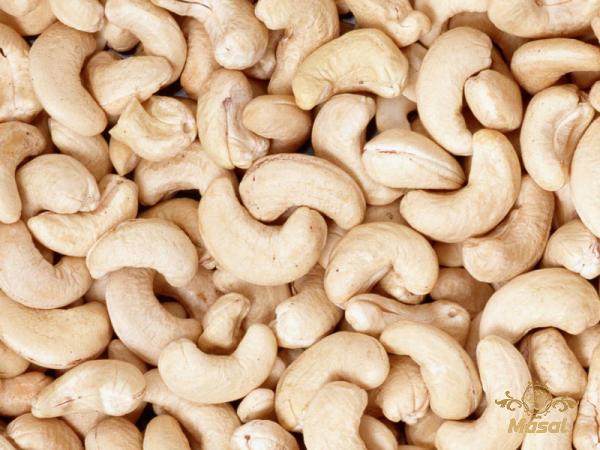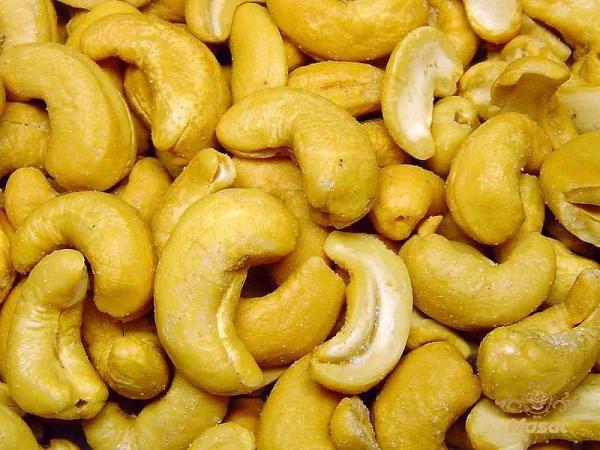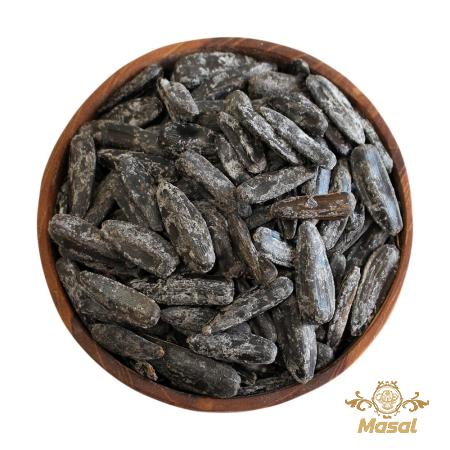Cashews, often regarded as the “king of nuts,” have gained immense popularity worldwide due to their unique taste, versatility, and nutritional benefits. Cashews are not only consumed as a snack but also find extensive use in various culinary applications, including salads, desserts, and vegan alternatives. As demand for cashews continues to rise, businesses involved in the bulk cashew trade have an excellent opportunity to tap into a lucrative market. This article provides a comprehensive overview of the bulk cashew industry, including its production, global trade, market trends, challenges, and future prospects. Production of Cashews: Cashews are native to Brazil but are now commercially cultivated in several tropical regions, including India, Vietnam, Nigeria, and Ivory Coast. The production process begins with the collection of ripe cashew apples, which contain the cashew nut between their fleshy pulp. Once harvested, the nuts undergo a series of processing steps, including shelling, drying, peeling, grading, and packaging. These processed cashews are then packed for export or used in various products. Global Trade in Cashews: Cashews are among the most traded nuts worldwide, with global annual exports exceeding 800,000 metric tons. India and Vietnam dominate the cashew export market, accounting for a sizable portion of global production. Other significant exporters include Brazil, Ivory Coast, and Nigeria. The United States, Europe, and emerging markets like China and India are the major importers of cashews. Additionally, growing consumer awareness about healthy snacking habits has boosted cashew consumption in recent years, leading to increased trade volumes. Market Trends and Consumer Demand: The bulk cashew market has witnessed substantial growth in recent years, driven by shifting consumer preferences for healthier snacks, rising disposable incomes, and vegan and gluten-free diets. Cashews’ nutritional profile, which includes protein, healthy fats, vitamins, and minerals, has made them an attractive choice for health-conscious individuals. The demand for natural, organic, and sustainably sourced cashews is also on the rise, prompting manufacturers and retailers to source bulk cashews from environmentally responsible suppliers. Applications and End-Use Industries: The versatility of cashews makes them a sought-after ingredient across various industries. From bakeries and confectioneries to processed food manufacturers and restaurants, cashews enhance the taste and texture of a wide range of products. Furthermore, the growing popularity of plant-based alternatives has fueled the demand for cashew-based milk, cheese, butter, and yogurts. The cosmetics industry also utilizes cashew oil, which is rich in antioxidants and moisturizing properties, in skincare and haircare products. Challenges and Strategies: The bulk cashew trade faces several challenges that industry players need to navigate. One significant hurdle is the price volatility of cashews due to fluctuating global supply and demand dynamics.

nut
 Climate change, pests, and diseases also pose risks to cashew production, leading to potential crop losses. Furthermore, ensuring quality control throughout the supply chain, maintaining food safety standards, and adhering to ethical sourcing practices are vital considerations for businesses handling bulk cashews. Implementing robust quality management systems, investing in research and development, and fostering strong relationships with suppliers can help mitigate these challenges. Sustainable and Ethical Sourcing: In recent years, there has been an increasing focus on sustainable and ethical sourcing practices within the cashew industry. Consumers are more conscious about the social and environmental impact of their purchasing decisions. As a result, businesses involved in the bulk cashew trade have started implementing sustainability initiatives that include fair trade certification, supporting local communities, and promoting sustainable farming techniques. These efforts not only ensure a more responsible supply chain but also build trust and loyalty among consumers. Future Prospects: The future of the bulk cashew trade looks promising, with analysts projecting continued growth in the coming years. Factors such as the rising popularity of vegan diets, increased consumer demand for healthy and natural snacks, and the expansion of emerging markets are expected to drive the demand for bulk cashews. Furthermore, advancements in farming techniques, processing technology, and transportation infrastructure will likely enhance productivity and streamline the supply chain, making bulk cashews more accessible to businesses and consumers globally. Conclusion: The bulk cashew trade presents an attractive business opportunity for entrepreneurs and existing industry players alike. With rising consumer demand, changing dietary patterns, and a growing focus on sustainability, businesses involved in the bulk cashew trade can capitalize on the growing global market. However, it is essential for stakeholders to overcome challenges relating to price volatility, quality control, and sustainability practices to ensure long-term success in this thriving industry. By investing in quality management, sustainable sourcing, and innovation, businesses can establish themselves as leaders in the bulk cashew trade while meeting the evolving demands of consumers. I. Market Analysis and Opportunities in Bulk Cashew Trade: The bulk cashew trade presents significant opportunities for businesses to tap into a thriving market. The cashew nut market has shown consistent growth over the years, driven by increasing global demand for healthy and natural snacks, the rise of vegan and gluten-free diets, and the versatility of cashews in various industries. The market analysis reveals a favorable outlook for the bulk cashew trade, making it an appealing venture for entrepreneurs and existing industry players. II. Navigating Price Volatility and Supply Chain Management: One of the key challenges in the bulk cashew trade is the price volatility of cashews due to fluctuations in supply and demand dynamics. Market conditions, weather patterns, and geopolitical factors can impact cashew prices, creating uncertainty for businesses. To mitigate this risk, businesses can implement effective supply chain management strategies, including building strong relationships with suppliers, monitoring market trends, and diversifying sourcing options. By carefully managing procurement, storage, and distribution, businesses can navigate price fluctuations and ensure a stable supply of bulk cashews. III. Quality Control and Food Safety Measures: Maintaining consistent quality and adhering to food safety standards are critical factors in the bulk cashew trade.
Climate change, pests, and diseases also pose risks to cashew production, leading to potential crop losses. Furthermore, ensuring quality control throughout the supply chain, maintaining food safety standards, and adhering to ethical sourcing practices are vital considerations for businesses handling bulk cashews. Implementing robust quality management systems, investing in research and development, and fostering strong relationships with suppliers can help mitigate these challenges. Sustainable and Ethical Sourcing: In recent years, there has been an increasing focus on sustainable and ethical sourcing practices within the cashew industry. Consumers are more conscious about the social and environmental impact of their purchasing decisions. As a result, businesses involved in the bulk cashew trade have started implementing sustainability initiatives that include fair trade certification, supporting local communities, and promoting sustainable farming techniques. These efforts not only ensure a more responsible supply chain but also build trust and loyalty among consumers. Future Prospects: The future of the bulk cashew trade looks promising, with analysts projecting continued growth in the coming years. Factors such as the rising popularity of vegan diets, increased consumer demand for healthy and natural snacks, and the expansion of emerging markets are expected to drive the demand for bulk cashews. Furthermore, advancements in farming techniques, processing technology, and transportation infrastructure will likely enhance productivity and streamline the supply chain, making bulk cashews more accessible to businesses and consumers globally. Conclusion: The bulk cashew trade presents an attractive business opportunity for entrepreneurs and existing industry players alike. With rising consumer demand, changing dietary patterns, and a growing focus on sustainability, businesses involved in the bulk cashew trade can capitalize on the growing global market. However, it is essential for stakeholders to overcome challenges relating to price volatility, quality control, and sustainability practices to ensure long-term success in this thriving industry. By investing in quality management, sustainable sourcing, and innovation, businesses can establish themselves as leaders in the bulk cashew trade while meeting the evolving demands of consumers. I. Market Analysis and Opportunities in Bulk Cashew Trade: The bulk cashew trade presents significant opportunities for businesses to tap into a thriving market. The cashew nut market has shown consistent growth over the years, driven by increasing global demand for healthy and natural snacks, the rise of vegan and gluten-free diets, and the versatility of cashews in various industries. The market analysis reveals a favorable outlook for the bulk cashew trade, making it an appealing venture for entrepreneurs and existing industry players. II. Navigating Price Volatility and Supply Chain Management: One of the key challenges in the bulk cashew trade is the price volatility of cashews due to fluctuations in supply and demand dynamics. Market conditions, weather patterns, and geopolitical factors can impact cashew prices, creating uncertainty for businesses. To mitigate this risk, businesses can implement effective supply chain management strategies, including building strong relationships with suppliers, monitoring market trends, and diversifying sourcing options. By carefully managing procurement, storage, and distribution, businesses can navigate price fluctuations and ensure a stable supply of bulk cashews. III. Quality Control and Food Safety Measures: Maintaining consistent quality and adhering to food safety standards are critical factors in the bulk cashew trade.
Specifications of nut
 Consumers increasingly expect high-quality products that meet their expectations for taste, appearance, and nutritional value. Implementing a robust quality control system ensures that bulk cashews meet stringent quality standards at every stage of the supply chain, from sourcing and processing to packaging and storage. Businesses should also conduct regular audits and inspections to mitigate the risk of contamination and ensure safe consumption. IV. Rising Demand for Organic and Sustainably Sourced Cashews: In today’s environmentally conscious marketplace, there is a growing demand for organic and sustainably sourced products, including cashews. Consumers are increasingly seeking responsibly sourced bulk cashews that are free from pesticides, harmful chemicals, and unfair labor practices. To meet this demand, businesses should consider sourcing from certified organic farms and suppliers that adhere to ethical labor practices. Communicating and promoting the sustainability and ethical attributes of bulk cashews can enhance brand credibility and attract conscious consumers. V. Capitalizing on Cashew-Based Alternatives: The popularity of plant-based alternatives has opened up new avenues for businesses involved in the bulk cashew trade. The culinary applications of cashews extend beyond traditional snacking, with cashews being used to create dairy alternatives such as cashew milk, cheese, and yogurts. The demand for these products has surged alongside the growing trend of plant-based diets. By exploring and capitalizing on the market for cashew-based alternatives, businesses can diversify their product offerings and cater to a wider consumer base. VI. Innovations in Cashew Processing Technology: Advancements in processing technology have revolutionized the bulk cashew trade, improving efficiency, product quality, and the overall value chain. Automated cashew processing machines have streamlined the shelling, drying, and grading processes, reducing labor costs and enhancing productivity. Additionally, technological advancements have also led to the development of value-added cashew products, such as flavored cashews, roasted cashews, and cashew-based snacks. By embracing innovative processing techniques, businesses can stay competitive and cater to evolving consumer preferences. VII. International Trade Regulations and Export Opportunities: Understanding international trade regulations and compliance requirements is essential for businesses involved in the bulk cashew trade. Different countries have specific regulations regarding imports, labeling, and certifications, which businesses need to navigate.
Consumers increasingly expect high-quality products that meet their expectations for taste, appearance, and nutritional value. Implementing a robust quality control system ensures that bulk cashews meet stringent quality standards at every stage of the supply chain, from sourcing and processing to packaging and storage. Businesses should also conduct regular audits and inspections to mitigate the risk of contamination and ensure safe consumption. IV. Rising Demand for Organic and Sustainably Sourced Cashews: In today’s environmentally conscious marketplace, there is a growing demand for organic and sustainably sourced products, including cashews. Consumers are increasingly seeking responsibly sourced bulk cashews that are free from pesticides, harmful chemicals, and unfair labor practices. To meet this demand, businesses should consider sourcing from certified organic farms and suppliers that adhere to ethical labor practices. Communicating and promoting the sustainability and ethical attributes of bulk cashews can enhance brand credibility and attract conscious consumers. V. Capitalizing on Cashew-Based Alternatives: The popularity of plant-based alternatives has opened up new avenues for businesses involved in the bulk cashew trade. The culinary applications of cashews extend beyond traditional snacking, with cashews being used to create dairy alternatives such as cashew milk, cheese, and yogurts. The demand for these products has surged alongside the growing trend of plant-based diets. By exploring and capitalizing on the market for cashew-based alternatives, businesses can diversify their product offerings and cater to a wider consumer base. VI. Innovations in Cashew Processing Technology: Advancements in processing technology have revolutionized the bulk cashew trade, improving efficiency, product quality, and the overall value chain. Automated cashew processing machines have streamlined the shelling, drying, and grading processes, reducing labor costs and enhancing productivity. Additionally, technological advancements have also led to the development of value-added cashew products, such as flavored cashews, roasted cashews, and cashew-based snacks. By embracing innovative processing techniques, businesses can stay competitive and cater to evolving consumer preferences. VII. International Trade Regulations and Export Opportunities: Understanding international trade regulations and compliance requirements is essential for businesses involved in the bulk cashew trade. Different countries have specific regulations regarding imports, labeling, and certifications, which businesses need to navigate.
buy nut
 By ensuring compliance with global trade regulations, businesses can access a wider range of export opportunities and expand their market reach. Building strong relationships with international buyers and distributors is also crucial for establishing a successful export network in the global cashew trade. VIII. Marketing and Branding Strategies: Effective marketing and branding strategies play a pivotal role in the success of businesses involved in the bulk cashew trade. With increasing competition, businesses need to differentiate themselves and create a strong brand identity. Utilizing various marketing channels, such as social media, online platforms, and trade shows, can help businesses promote their bulk cashews to target audiences. Emphasizing product quality, sustainability, and unique selling propositions can help businesses carve a niche in the market and attract loyal customers. IX. Identifying Niche Markets and Vertical Integration: Identifying niche markets within the bulk cashew trade can provide businesses with opportunities for growth and differentiation. For example, targeting health food stores, gourmet retailers, and specialty food manufacturers can tap into niche market segments that value high-quality and unique cashew products. In addition, vertical integration in the cashew supply chain can offer businesses greater control over quality, sourcing, and production. By vertically integrating, businesses can enhance efficiency, reduce costs, and develop a competitive advantage. X. Collaboration and Partnerships in the Bulk Cashew Industry: Collaboration and strategic partnerships can be beneficial for businesses involved in the bulk cashew trade. Collaborating with cashew producers, processors, and distributors can create synergies, improve supply chain efficiency, and leverage complementary strengths. Additionally, partnering with food manufacturers, chefs, and retailers can help businesses explore innovative product development, expand market reach, and drive consumer demand. Building strong networks and fostering relationships within the industry can lead to long-term growth and success. Conclusion: The bulk cashew trade offers a range of lucrative opportunities for businesses seeking to enter a growing market. By understanding market trends, addressing key challenges, and implementing effective strategies, businesses can establish themselves as key players in the industry. Whether through quality control measures, sustainable sourcing practices, product innovations, or market collaborations, businesses can tap into the growing demand for bulk cashews and capitalize on the market’s potential.
By ensuring compliance with global trade regulations, businesses can access a wider range of export opportunities and expand their market reach. Building strong relationships with international buyers and distributors is also crucial for establishing a successful export network in the global cashew trade. VIII. Marketing and Branding Strategies: Effective marketing and branding strategies play a pivotal role in the success of businesses involved in the bulk cashew trade. With increasing competition, businesses need to differentiate themselves and create a strong brand identity. Utilizing various marketing channels, such as social media, online platforms, and trade shows, can help businesses promote their bulk cashews to target audiences. Emphasizing product quality, sustainability, and unique selling propositions can help businesses carve a niche in the market and attract loyal customers. IX. Identifying Niche Markets and Vertical Integration: Identifying niche markets within the bulk cashew trade can provide businesses with opportunities for growth and differentiation. For example, targeting health food stores, gourmet retailers, and specialty food manufacturers can tap into niche market segments that value high-quality and unique cashew products. In addition, vertical integration in the cashew supply chain can offer businesses greater control over quality, sourcing, and production. By vertically integrating, businesses can enhance efficiency, reduce costs, and develop a competitive advantage. X. Collaboration and Partnerships in the Bulk Cashew Industry: Collaboration and strategic partnerships can be beneficial for businesses involved in the bulk cashew trade. Collaborating with cashew producers, processors, and distributors can create synergies, improve supply chain efficiency, and leverage complementary strengths. Additionally, partnering with food manufacturers, chefs, and retailers can help businesses explore innovative product development, expand market reach, and drive consumer demand. Building strong networks and fostering relationships within the industry can lead to long-term growth and success. Conclusion: The bulk cashew trade offers a range of lucrative opportunities for businesses seeking to enter a growing market. By understanding market trends, addressing key challenges, and implementing effective strategies, businesses can establish themselves as key players in the industry. Whether through quality control measures, sustainable sourcing practices, product innovations, or market collaborations, businesses can tap into the growing demand for bulk cashews and capitalize on the market’s potential.










Your comment submitted.